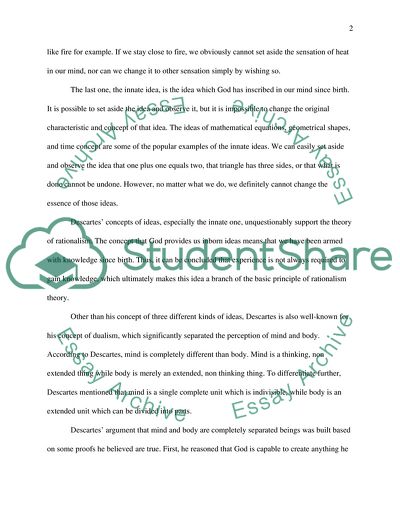Cite this document
(The Clash between Empiricism and Rationalism Essay Example | Topics and Well Written Essays - 1500 words - 19, n.d.)
The Clash between Empiricism and Rationalism Essay Example | Topics and Well Written Essays - 1500 words - 19. https://studentshare.org/philosophy/1729214-philosophy
The Clash between Empiricism and Rationalism Essay Example | Topics and Well Written Essays - 1500 words - 19. https://studentshare.org/philosophy/1729214-philosophy
(The Clash Between Empiricism and Rationalism Essay Example | Topics and Well Written Essays - 1500 Words - 19)
The Clash Between Empiricism and Rationalism Essay Example | Topics and Well Written Essays - 1500 Words - 19. https://studentshare.org/philosophy/1729214-philosophy.
The Clash Between Empiricism and Rationalism Essay Example | Topics and Well Written Essays - 1500 Words - 19. https://studentshare.org/philosophy/1729214-philosophy.
“The Clash Between Empiricism and Rationalism Essay Example | Topics and Well Written Essays - 1500 Words - 19”. https://studentshare.org/philosophy/1729214-philosophy.


